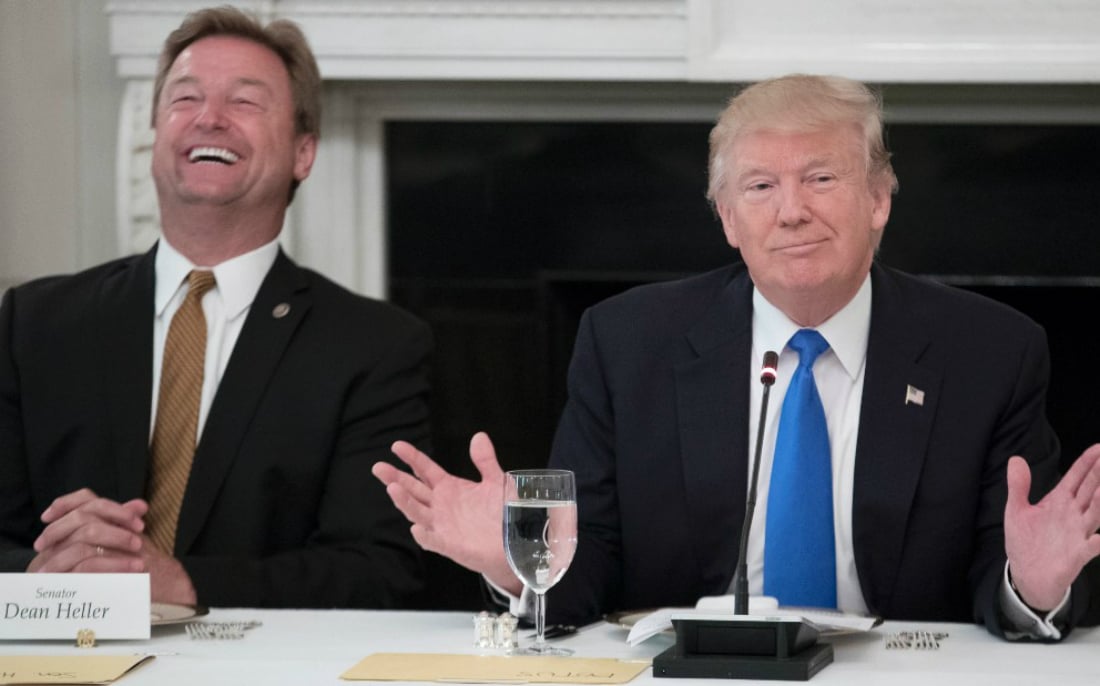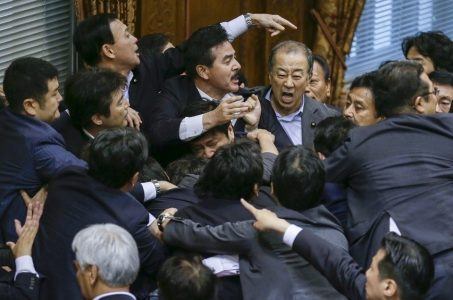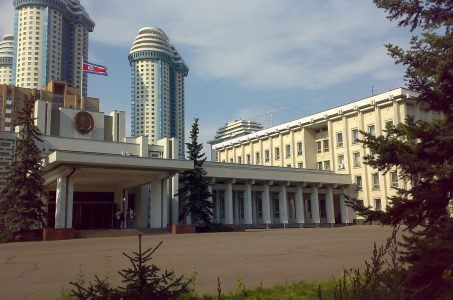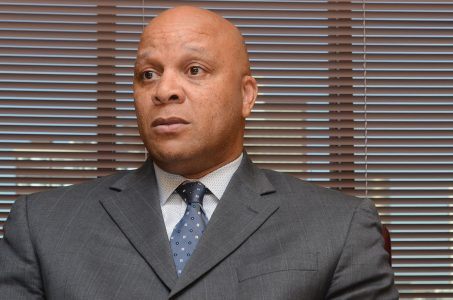Feds Double Las Vegas Anti-Terror Funding to $5 Million in Wake of Oct. 1 Shooting
Posted on: May 22, 2018, 12:56h.
Last updated on: May 22, 2018, 12:58h.
Las Vegas has been awarded a $5 million grant under the US Department of Homeland Security’s (DHS) Urban Areas Security Initiative (UASI). That amount marks a $2.13 million increase on what the city received last year in the same federal funding program, a reflection of how the October 1, 2017 Route 91 Harvest music festival shooting from Mandalay Bay has impacted the perception of the gaming mecca’s vulnerability factor as a potential terrorist target.

US senator from Nevada Dean Heller (R) — who has petitioned the DHS to increase Las Vegas’ funding for counterterrorism efforts for several years — recently reemphasized his concerns in the wake of the mass shooting. Heller announced the grant increase in a press release this week.
“I have made it one of my top priorities to ensure that Las Vegas has the resources that it needs to protect its residents, visitors, and its tourism economy. For years, I have pushed the Department of Homeland Security … so that Las Vegas receives adequate funding to preempt and protect against threats,” said Heller, who is currently both embroiled in a prior campaign donation scandal and seeking to hold his US Senate seat come November’s elections.
Safety First
The Urban Areas Security Initiative (UASI) was created in response to 9/11. The federal funds are allocated to cities classified as “high-threat, high-density urban areas.”
The DHS says the money is to be used to “build, sustain, and deliver the capabilities necessary to prevent, protect against, mitigate, respond to, and recover from acts of terrorism.”
The October 1 shooting that left 58 dead hasn’t been classified as an act of terrorism: no known motive for shooter Stephen Paddock’s actions has yet emerged.
The massacre did keep visitors away in the immediate months following, and Strip casino revenue dropped five percent between October and December of last year.
Las Vegas was featured in a propaganda video released by a major extremist terror group in 2016. American intelligence officials confirmed the video was produced by members of the Islamic State militant group, but said no viable threat had been uncovered.
Reclassification Needed
Heller has urged the DHS to amend how it assesses a city’s terrorism risk. The feds currently take into account the likelihood of an attack, the city’s vulnerability and proximity to border countries, as well as potential consequences an act of terror could wreak.
“Unfortunately, the Las Vegas Strip is ‘clustered’ and considered one asset,” Heller said in a March 2018 letter to DHS Secretary Kirstjen Nielsen. The plea was co-signed by Governor Brian Sandoval (R) and Nevada’s congressional delegation.
The senator noted that an attack has the potential to cripple the casino and hotel-centric Southern Nevada economy.
“A single property can have over 70,000 employees and visitors at any given time,” Heller implored. “Given that these heavily populated buildings are precisely the types of assets being targeted by terrorists, we ask that you count these properties individually.”
While Heller is celebrating the DHS reconsidering its anti-terrorism money for Las Vegas, $5 million towards combatting terror attacks won’t stretch all that far. The Southern Nevada Counter-Terrorism Center — an agency within the Las Vegas Metro Police Department that acts to detect and defend against potential assaults — has an operating budget of $16 million this year: more than three times the DHS funding.
Tightening Up
In 2017, $580 million was awarded under UASI in the fiscal year. New York City received the most at $178.1 million. For Las Vegas last year, it was just over $2.8 million: the same amount allocated to Sacramento, Denver, Tampa, St. Louis, Charlotte, Cleveland, Portland, and Pittsburgh.
Nevada’s congressional delegation has successfully persuaded the DHS that the potential devastation for Las Vegas in a terror attack would be more elevated than for other US cities of the same size. The UASI increase comes as total federal funds for the program continue to be slashed under President Donald Trump.
UASI’s $580 million in 2017 was cut to $448.8 million in Trump’s 2018 fiscal year budget. Thirty-three cities were given anti-terrorism money last year, down from 64 cities in 2010, when UASI allocated over $832.5 million.
Related News Articles
Most Popular
LOST VEGAS: ‘Tony The Ant’ Spilotro’s Circus Circus Gift Shop
Las Vegas Overstated F1 Race’s Vegas Impact — Report
Mega Millions Reportedly Mulling Substantial Ticket Price Increase
Las Vegas Strip Stabbing Near The Strat Leaves One Man Dead
Most Commented
-
End of the Line for Las Vegas Monorail
— April 5, 2024 — 90 Comments -
Mega Millions Reportedly Mulling Substantial Ticket Price Increase
— April 16, 2024 — 8 Comments -
Long Island Casino Opponents Love New York Licensing Delays
— March 27, 2024 — 5 Comments
















No comments yet